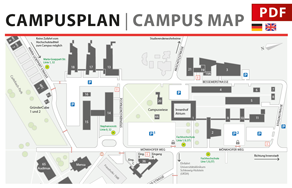Das CoSA-Seminar findet am 25.04.2022 um 11:45 Uhrals Webkonferenz über BBB Greenlight: CoSA - Seminar statt.
Die Webkonferenz wird ab ca. 11:30 Uhr für die Teilnehmer freigeschaltet.
Wir haben folgende Vorträge geplant:
- Fabian John: A Reference Deployment of a Minimal Open-Source Private Industry and Campus 5G Standalone (SA) System
- Swen Leugner: Forschungsprojekt O5G-N-IoT (Offene 5G-Campusnetze für Notfalleinsätze)
Die Vorträge dauern ca. 15 Minuten mit anschließend 10 Minuten Diskussion. Wir freuen uns auf eine rege und aktive Teilnahme.
Die Seminare sind auch auf https://www.th-luebeck.de/cosa/zu finden. Wenn Sie auch einmal einen Vortrag anbieten möchten, kontaktieren Sie uns gerne (fabian.john(at)th-luebeck.de).
Fabian John: A Reference Deployment of a Minimal Open-Source Private Industry and Campus 5G Standalone (SA) System
With the fifth-generation new radio (5G NR) being ready for deployment and with the possibility of acquiring private licenses, 5G is ready for campus deployment in industry and academia. As industry and academia do not have their own LTE networks, especially 5G standalone (SA) implementations gain importance. However, SA deployments include all components from the user equipment to radio units and core functionality in a large distributed system to work properly. Since commercial systems are costly, it is worth considering open-source implementations. We face the following challenges: many open-source projects are yet in the development phase, it is challenging to deploy 5G systems because hardware and software continuously evolve, documentation is incomplete, and 5G SA is a new technology. A small community runs a continuously changing deployment in a development branch. From the lessons learned, our contribution to the community is to provide a well-documented deployment based on existing tutorials and sometimes in code research and configuration file tests like try and error. For evaluation and proof of concept, we built a 5G system at the Technische Hochschule Lübeck - University of Applied Sciences with the provision of all information to deploy the system step by step and perform integration tests. We provide a complete solution for low costs of 10k EUR with off-the-shelf components and provide basic connectivity and iperf measurement results for latency and throughput as a reference for own deployments.
Swen Leugner: Forschungsprojekt O5G-N-IoT (Offene 5G-Campusnetze für Notfalleinsätze)
Im Projekt Offene 5G-Campusnetze für Notfalleinsätze unterstützt durch Technologien für das Internet der Dinge (O5G-N-IoT) wird der Schwerpunkt auf offene Architekturen für das Internet der Dinge zur industriellen Forschung und vorwettbewerblichen Entwicklung gelegt. Dabei steht zum einen die Entwicklung und Integration von 5G-Komponenten, z. B. von Kameras und Sensoren wie Gasmessgeräte für Noteinsatzkräfte, im Fokus. Zum anderen wird eine offene 5G-Infrastruktur entwickelt, die den Einsatz von Rettungskräften nicht nur vorsieht, sondern auch geeignet technisch unterstützt. Ein portables 5G-System ergänzt die Lösung. Damit wird der Leitgedanke eines Ende-zu-Ende programmierbaren 5G+ Systems des Leitprojekts CampusOS in den Anwendungsfeldern des O5G-N-IoT verfolgt.


